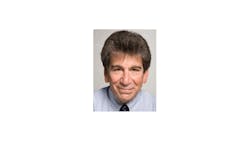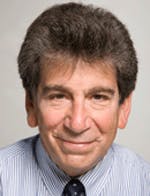Workers and 9/11 Responders Mourn Passing of Dr. Stephen Levin
“Steve was first and foremost an advocate for health of workers in the broadest sense,” Joel Shufro and Bill Henning, executive director and board chair respectively, New York Committee for Occupational Safety and Health (NYCOSH), said in a statement. Levin served on the health technical committee of NYCOSH, and spoke at numerous NYCOSH conferences on workers’ compensation and occupational disease and was a long-time member of the organization.
“He devoted his life and extraordinary talents not only to ensuring that workers who contracted occupational diseases got the best possible treatment, but to preventing workers from being exposed to the conditions that caused the illnesses,” they continued.
Levin was medical director of the Irving J. Selikoff Occupational and Environmental Medical Center for nearly 20 years, from 1987 until stepping down in 2006. Watching unprotected responders and clean up crews within days of 9/11, combing through the debris at Ground Zero, Levin knew from his own experience and research that the workers were at risk. When his calls for worker protections at Ground Zero fell on deaf ears, Levin mobilized the center to address the needs of emergency responders and clean-up workers whose health was adversely affected by the contaminants that blanketed lower Manhattan.
At a rally of first responders, community and worker advocates and doctors in 2003, Levin said, "For too many of these men and women, the EPA's false reassurance that the air quality in lower Manhattan was safe led to their being exposed to much more than they otherwise would have been. Many people did not wear the respiratory protection that they really needed."
Over the next few years, their work with these responders and the research that resulted proved that many were suffering from illnesses related to 9/11. Under the direction of Levin and Dr. Robin Herbert, the problems workers faced as a result of exposure were documented and their work provided the scientific and medical justification for the passage of the Zadroga Act, which established a compensation fund for World Trade rescue, recovery and clean up workers, volunteers and area residents.
As a protégé of Doctor Irving Selikoff, Levin was one of the nation's leading experts on asbestos disease. In the last years of his life, he devoted considerable time and effort to working on providing medical care for the workers and residents of Libby, Mont., who were exposed to asbestos.
“We were honored to have known Steve; to have been able to call him a friend. We will miss his impact in the fight for safer workplaces, but will also miss his counsel, his wonderful sense of humor, his ability to work with people from different backgrounds... His passing is a painful loss,” said Shufro and Henning.
A memorial service will take place Tuesday, Feb. 21 at 4 p.m. at the Mount Sinai School of Medicine's Stern Auditorium, 1468 Madison Ave.
About the Author

Sandy Smith
Sandy Smith is the former content director of EHS Today, and is currently the EHSQ content & community lead at Intelex Technologies Inc. She has written about occupational safety and health and environmental issues since 1990.

